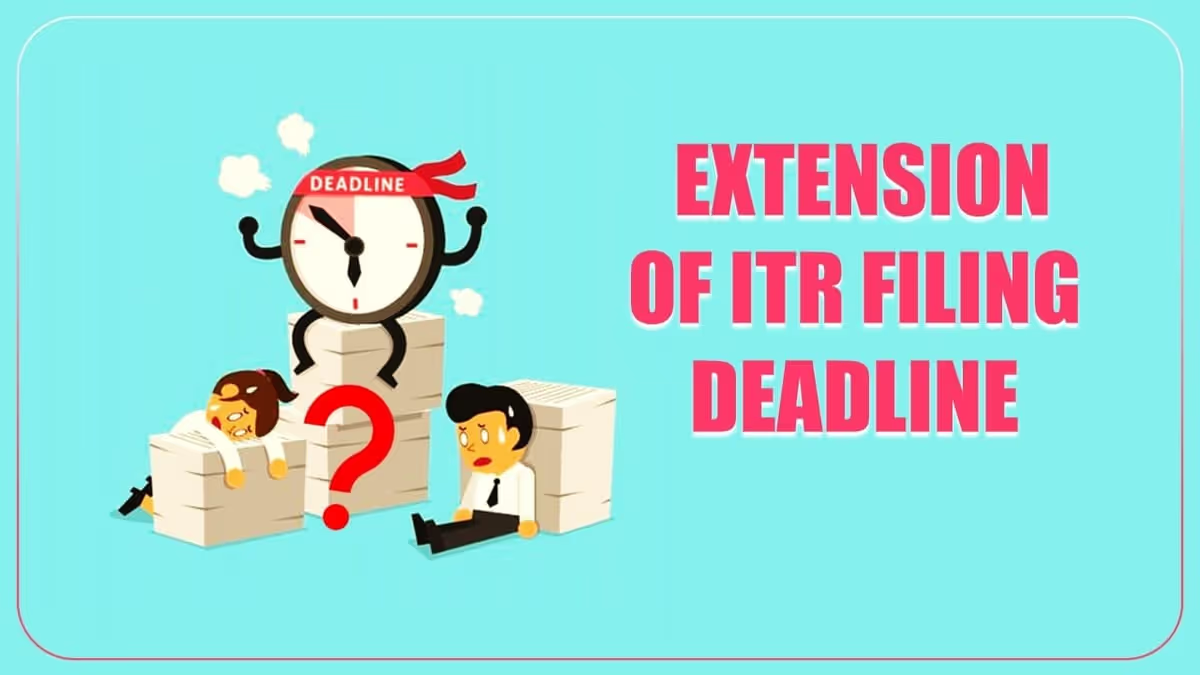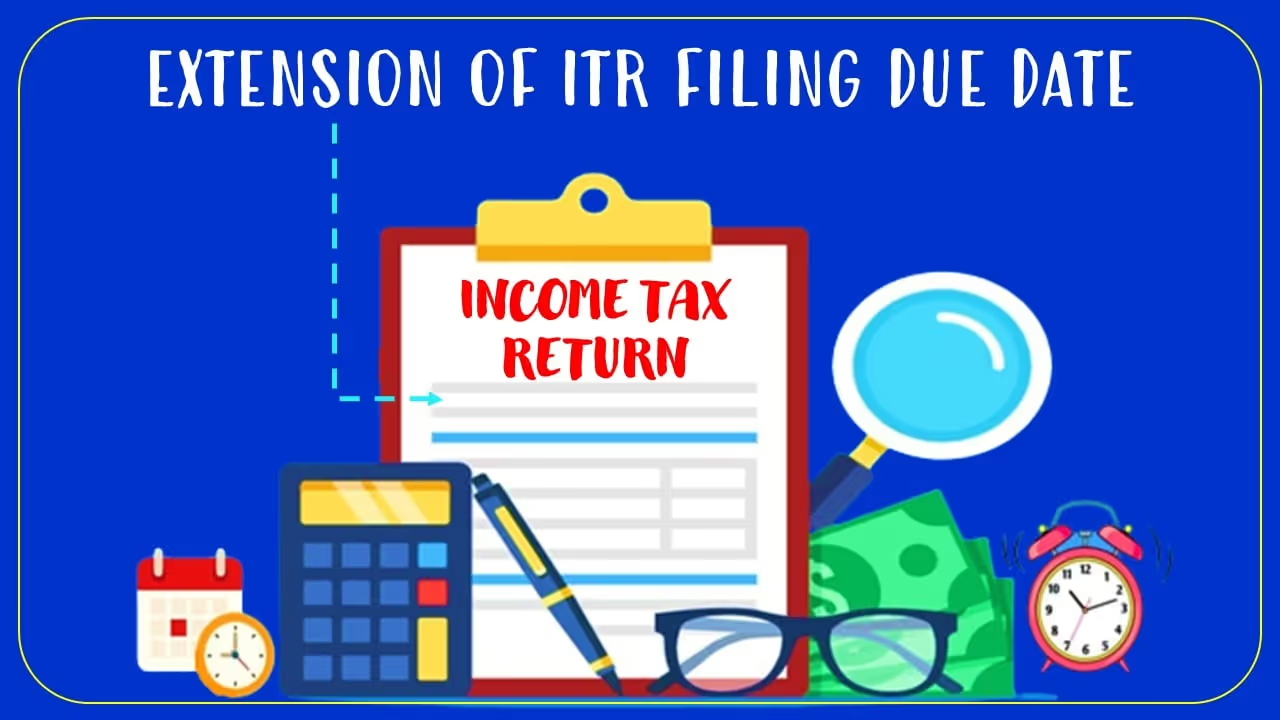.avif)
Calculate Your Crypto
Taxes in Minutes

April 15th is just around the corner. Feeling the pressure of the upcoming tax return deadline and wishing for more breathing room?
Luckily, the IRS has your back with an extension option, giving you extra time to sort out your taxes. This extension grants you a generous 6-month buffer to get everything in order.
Here at Kryptos, we get it. Taxes can be a real headache and when it comes to crypto the complexity multiplies by 100x. That's why we built Kryptos, the go-to crypto tax software to make your life stress-free. Picture this: within just 10 minutes, you can have your reports ready. From keeping tabs on your crypto portfolio to tracking live transactions and generating tax reports, our tool does it all in one place!
IRS Crypto Tax Extension 2026 – What’s New
With April 15, 2026 approaching, many crypto investors in the USA are considering the option of filing a crypto tax extension with the IRS. Just like previous years, taxpayers can request an automatic 6-month extension to October 15, 2026 using Form 4868. However, one critical reminder is that this extension only applies to filing, not payment. If you owe taxes on crypto capital gains, staking income, or DeFi rewards, you must still make your estimated payment by April 15 to avoid penalties.
Filing for an extension helps you avoid failure-to-file penalties, but it doesn’t protect you from failure-to-pay penalties if you owe taxes.
How do I file crypto taxes after the due date?

April 15, 2026, is the deadline to submit your 2024 federal tax return to the IRS. But if you need more time, no worries! You can apply for an extension, pushing your deadline to October 15, 2026. It's a chance to take things at your own pace and ensure everything's in order before filing your taxes.
Getting an extension for more time to file your federal tax return doesn't happen automatically. You'll have to submit a form to the IRS before your original deadline, letting them know you need extra time.
Most people in the USA use Form 4868, known as the Application for Automatic Extension of Time To File U.S. Individual Income Tax Return. Good news: you can e-file Form 4868 for free using the IRS website's Free File program. Below, we've laid out simple steps to guide you through the process.
If you're using tax software like TurboTax or H&R Block to file your taxes, they typically offer options to file an extension too.
How Much will you Pay before filing for an Extension
Alright, so you're thinking of requesting an extension, but you're worried about what you might owe and want to make a payment before April 15 rolls around. But how do you calculate your owed amount without diving into your tax return first?
Here are a few ways to estimate your federal tax liability:
- Fill Out Form 1040-ES: have a look at the 2023 Form 1040-ES, known as Estimated Tax for Individuals, and follow the instructions. Look at line 11c for your estimated liability, line 13 for payments, and line 14b for your balance due.
- Use Last Year's Figures: If your 2023 income is similar to 2022, you can use last year's tax as an estimate. Subtract your 2023 withholdings and payments from this amount to find your balance due.
- Try using Crypto Tax Software: There are handy online tools available that can give you a rough estimate of what you might owe without going through the entire tax return process.
- Check Your W-2 or Estimated Payments: For employed, refer to your W-2 for the tax already paid. If you're self-employed, use your estimated tax payments.
By using these methods, you can get a good idea of your tax situation and make any necessary payments before the deadline sneaks up on you.
How to Request an Extension on the IRS Website
- Head over to the IRS website's Free File program.
- Choose the 'Fillable Forms' option and set up your account.
- Click on 'File Extension’.
- Fill in the details on the screen. Not sure about your estimated liability? Check out our handy How Much to Pay section above.
- If you're self-employed, it can be trickier. Usually, you base it on last year's figures.
- Don't sweat it too much if you estimate wrong. Underpaying means penalties, overpaying means a refund.
- Input the amount you've already paid, using the federal withholding from your Form W-2. For self-employed folks, it's your estimated tax payments.
- Your balance due will automatically calculate once you hit 'Do the math.'
- You can decide whether to make a payment or not—details are explained below.
- Submit IRS Form 4868. Never forget to note down your new filing deadline; typically, it's October 15, but it might vary slightly if October 15 falls on a weekend.
Important Reminder: Filing for an Extension Doesn't Mean Delaying Payment
When you request an extension from the IRS for extra time to file your taxes, it's essential to understand that this extension only applies to the filing deadline, not the payment deadline. If you owe taxes, they're still due by the original April 15 deadline, and no extensions are given for payment. However, if you need more time to pay, don't worry. The IRS offers various payment plan options that you can explore to find what works best for your situation.
Here's a helpful tip: If you owe taxes and miss the actual deadline without paying, you may face penalties. Keep in mind that while an extension can prevent failure-to-file penalties, it won't shield you from failure-to-pay penalties.
Looking for an Easy Solution to Handle Your Crypto Taxes?
When it comes to calculating your crypto tax liability, using crypto tax software like Kryptos makes it incredibly easy.
This user-friendly crypto tax software serves as a one-stop solution for calculating your taxes and reporting crypto income without the headache of complex calculations.
Here’s how it works:
1. Import Your Transaction History: Begin by importing your crypto transaction history from various sources such as wallets, exchanges, or blockchains. Kryptos supports seamless integration from over 3000+ DeFi Protocols & Top Exchanges via API or CSV files, making it convenient to consolidate all your crypto transactions in one place.
2. Automated Calculations: Once you’ve imported your transaction history, Kryptos takes over to crunch the numbers. It automatically calculates your capital gains, losses, income, and expenses associated with your crypto investments. No need to manually sift through transactions or perform tedious calculations.
3. Access Tax Reports: Head over to the tax report page within your Kryptos account to access a comprehensive summary of your crypto taxes. Kryptos offers a variety of tax reports tailored to different locations and tax authorities, ensuring compliance with local regulations. For US investors, this includes essential reports like the IRS Report (Form 8949 and Schedule D), which details your capital gains and losses, saving you valuable time and effort.
4. Download and File: With your tax reports in hand, you’re all set to file your taxes. Kryptos allows you to download reports compatible with popular tax filing platforms such as TurboTax CSV, TurboTaxOnline, Tax Slayer, Tax Act, H&R Block (TXF), TurboTax Desktop (TXF), streamlining the filing process further. Simply upload the generated report to your preferred tax application, and you’re good to go.
5. If you need assistance regarding your tax filing, Kryptos can help. We make your tax reporting process simple and stress-free! Contact us today to discuss your situation.
How Kryptos Simplifies Crypto Tax Extensions
Handling crypto transactions during tax season can be overwhelming, especially when you’re juggling NFTs, DeFi protocols, and multiple exchange accounts. That’s where Kryptos crypto tax software comes in. Kryptos automates calculations and generates IRS-ready tax forms so you can file accurately, even if you request an extension.
Why Kryptos is perfect for IRS crypto tax filing in 2026:
- Imports data from 3000+ DeFi protocols and 100+ exchanges.
- Calculates capital gains, income, and losses automatically.
- Generates Form 8949 & Schedule D for IRS reporting.
- Creates export files compatible with TurboTax, TaxAct, H&R Block, and TaxSlayer.
- Identifies tax-loss harvesting opportunities before you file.
Why Proactive Filing Matters in 2026
The IRS has increased its resources for crypto tax enforcement in 2026, including expanded use of blockchain analytics tools and the upcoming requirement for exchanges to issue Form 1099-DA starting in 2026 (covering 2026 activity). This means U.S. taxpayers have less wiggle room to delay or hide transactions. Filing on time — or using an extension responsibly — ensures compliance and prevents costly penalties.
FAQs
Does the IRS track Crypto transactions?
Absolutely, the IRS tracks cryptocurrency. They do this by gathering Know Your Customer (KYC) information from centralized exchanges. In the near future, the IRS will have even more resources to gather data, as both centralized and decentralized exchanges will be required to issue the 1099-DA form starting in the 2026 fiscal year, covering transactions from 2026 onwards.
Do exchanges report to the IRS?
Big exchanges in the US have to gather this info because of KYC rules. And yes, the IRS can ask for these details from the exchanges. They've done it before, like with Coinbase and Kraken, using something called John Doe Summons.
Can the IRS track on-chain transactions?
Yes, the IRS has the ability to monitor cryptocurrency transactions across different blockchains and centralized exchange platforms. They can keep tabs on native blockchain transactions using blockchain analysis tools. Additionally, certain centralized exchanges operating in the United States are required to follow IRS guidelines, which means they have to share customer details like KYC information and transaction histories.
What happens if I don’t report my crypto transactions?
The IRS wants to remind you: if you're dealing with cryptocurrency, you've got to pay taxes on it. Ignoring this could land you in trouble. Tax evasion and fraud are serious offenses, and if you're caught, you could end up owing a big chunk of what you owe in taxes, facing fines as high as $100,000 (or $500,000 for businesses), and even spending up to 5 years in jail.
| Step | Form | Purpose | Action |
|---|---|---|---|
| 1 | 1099-DA | Reports digital asset sales or exchanges | Use to fill out Form 8949. |
| 2 | Form 1099-MISC | Reports miscellaneous crypto income | Use to fill out Schedule 1 or C. |
| 3 | Form 8949 | Details individual transactions | List each transaction here. |
| 4 | Schedule D | Summarizes capital gains/losses | Transfer totals from Form 8949. |
| 5 | Schedule 1 | Reports miscellaneous income | Include miscellaneous income (if not self-employment). |
| 6 | Schedule C | Reports self-employment income | Include self-employment income and expenses. |
| 7 | Form W-2 | Reports wages (if paid in Bitcoin) | Include wages in total income. |
| 8 | Form 1040 | Primary tax return | Summarize all income, deductions, and tax owed. |
| Date | Event/Requirement |
|---|---|
| January 1, 2025 | Brokers begin tracking and reporting digital asset transactions. |
| February 2026 | Brokers issue Form 1099-DA for the 2025 tax year to taxpayers. |
| April 15, 2026 | Deadline for taxpayers to file their 2025 tax returns with IRS data. |
| Timeline Event | Description |
|---|---|
| Before January 1, 2025 | Taxpayers must identify wallets and accounts containing digital assets and document unused basis. |
| January 1, 2025 | Snapshot date for confirming remaining digital assets in wallets and accounts. |
| March 2025 | Brokers begin issuing Form 1099-DA, reflecting a wallet-specific basis. |
| Before Filing 2025 Tax Returns | Taxpayers must finalize their Safe Harbor Allocation to ensure compliance and avoid penalties. |
| Feature | Use Case Scenario | Technical Details |
|---|---|---|
| Automated Monitoring of Transactions | Alice uses staking on Ethereum 2.0 and yield farming on Uniswap. Kryptos automates tracking of her staking rewards and LP tokens across platforms. | Integrates with Ethereum and Uniswap APIs for real-time tracking and monitoring of transactions. |
| Comprehensive Data Collection | Bob switches between liquidity pools and staking protocols. Kryptos aggregates all transactions, including historical data. | Pulls and consolidates data from multiple sources and supports historical data imports. |
| Advanced Tax Categorization | Carol earns from staking Polkadot and yield farming on Aave. Kryptos categorizes her rewards as ordinary income and investment income. | Uses jurisdiction-specific rules to categorize rewards and guarantee compliance with local tax regulations. |
| Dynamic FMV Calculation | Dave redeems LP tokens for Ethereum and stablecoins. Kryptos calculates the fair market value (FMV) at redemption and during sales. | Updates FMV based on market data and accurately calculates capital gains for transactions. |
| Handling Complex DeFi Transactions | Eve engages in multi-step DeFi transactions. Kryptos tracks value changes and tax implications throughout these processes. | Manages multi-step transactions, including swaps and staking, for comprehensive tax reporting. |
| Real-Time Alerts and Updates | Frank receives alerts on contemporary tax regulations affecting DeFi. Kryptos keeps him updated on relevant changes in tax laws. | Observe regulatory updates and provide real-time alerts about changes in tax regulations. |
| Seamless Tax Reporting Integration | Grace files taxes using TurboTax. Kryptos integrates with TurboTax to import staking and yield farming data easily. | Direct integration with tax software like TurboTax for smooth data import and multi-jurisdictional reporting. |
| Investor Type | Impact of Crypto Tax Updates 2025 |
|---|---|
| Retail Investors | Standardized crypto reporting regulations make tax filing easier, but increased IRS visibility raises the risk of audits. |
| Traders & HFT Users | To ensure crypto tax compliance, the IRS is increasing its scrutiny and requiring precise cost-basis calculations across several exchanges. |
| Defi & Staking Participants | The regulations for reporting crypto transactions for staking rewards, lending, and governance tokens are unclear, and there is a lack of standardization for decentralized platforms. |
| NFT Creators & Buyers | Confusion over crypto capital gains tax in 2025, including the taxation of NFT flips, royalties, and transactions across several blockchains. |
| Crypto Payments & Businesses | Merchants who take Bitcoin, USDC, and other digital assets must track crypto capital gains for each transaction, which increases crypto tax compliance requirements. |
| Event | Consequences | Penalties |
|---|---|---|
| Reporting Failure | The tax authorities can mark uncontrolled revenues and further investigate. | Penalty fines, interest on unpaid taxes and potential fraud fees if they are deliberately occurring. |
| Misreporting CGT | Misreporting CGT Error reporting profits or losses can trigger the IRS audit. | 20% fine on under -ported zodiac signs, as well as tax and interest. |
| Using decentralized exchanges (DEXs) or mixers without records | The IRS can track anonymous transactions and demand documentation. | Possible tax evasion fee and significant fine. |
| Disregarding Bitcoin mining tax liabilities | Mining reward is considered taxable income, and failure of the report can be regarded as tax fraud. | Further tax obligations, punishment and potential legal steps. |
| Foreign crypto holdings: Non-disclosure | Foreign-accepted crypto FATCA may be subject to reporting rules. | Heavy fines (up to $ 10,000 per fracture) or prosecution for intentional non-transport. |
File Your Crypto Tax in Minutes











